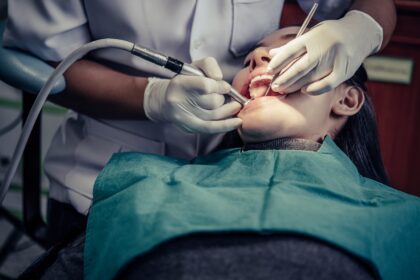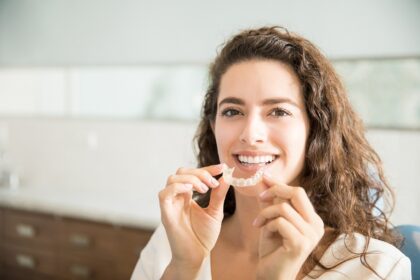Living with Lichen Planus can be challenging, especially when the itching, irritation, or oral discomfort affect your daily routine. Although medical treatment plays an important role, many people find additional comfort through herbal remedies for Lichen Planus that support healing and soothe inflammation. This article explains practical, safe, and evidence-based approaches you can use at home, combining medical insight with natural care.
Understanding Lichen Planus
Lichen Planus is an inflammatory condition that can affect the skin, mouth, nails, scalp, or genital areas. It usually appears as small, flat-topped, purplish bumps on the skin or as painful white patches in the mouth. While the exact cause is not fully understood, it is considered an autoimmune reaction — where the body’s immune system mistakenly attacks its own tissues.
Though it is not contagious or life-threatening, the symptoms can be uncomfortable. Managing this condition involves relieving itching, preventing infection, and promoting overall skin health through gentle care and healthy habits.
Why Consider Home Remedies
While medications like corticosteroids or antihistamines are often prescribed, they may not always provide lasting relief. This is why many people look for natural treatment for Lichen Planus to complement medical care. Home remedies focus on calming inflammation, supporting the skin’s natural barrier, and reducing triggers that worsen the condition.
Let’s explore the most effective options that genuinely make a difference.
- Moisturise Regularly
Dry skin can worsen irritation and cause further itching. Using fragrance-free moisturisers or natural emollients like coconut oil, shea butter, or almond oil helps lock in moisture. Apply a thin layer after a lukewarm shower or bath to keep your skin smooth and hydrated.
Those with scalp involvement may gently massage coconut oil into the scalp and leave it overnight before washing with a mild shampoo.
- Aloe Vera Gel for Soothing Relief
Aloe vera is well known for its healing properties. Applying pure aloe gel directly to affected skin areas can reduce redness, burning, and discomfort. For oral Lichen Planus, aloe vera mouthwash or gel may help soothe painful ulcers and support recovery.
This simple herbal remedy for Lichen Planus is gentle enough for daily use and can be safely combined with medical treatment.
- Oatmeal Baths to Reduce Itching
Colloidal oatmeal is a proven home remedy for calming irritated skin. Add a cup of finely ground oats to lukewarm bath water and soak for 10–15 minutes. The soothing compounds in oats create a protective layer on your skin, helping to relieve dryness and inflammation.
For localised patches, you can also make a paste by mixing ground oats with water and applying it to the affected area for a few minutes before rinsing.
- Dietary Changes for Better Immunity
What you eat can influence inflammation in the body. Focus on an anti-inflammatory diet rich in:
- Fresh fruits and vegetables
- Whole grains
- Fatty fish (salmon, sardines, mackerel)
- Nuts and seeds
- Olive oil
Avoid spicy, acidic, or processed foods, as they can trigger flare-ups, especially for oral Lichen Planus. Maintaining a balanced diet supports healing from within and strengthens the immune system.
- Turmeric (Curcumin) for Healing Support
Turmeric contains curcumin, a natural compound known for its anti-inflammatory and antioxidant properties. Mixing turmeric powder with a little honey and applying it gently on skin lesions may help calm irritation.
For oral lesions, rinse with warm water after applying a diluted turmeric paste. Including turmeric in your daily diet can also promote general immune balance. This natural approach is one of the most trusted herbal remedies for Lichen Planus used in holistic care.
- Coconut Oil Pulling and Application
Coconut oil has mild antibacterial and soothing properties. Swishing a tablespoon of coconut oil in your mouth for 5–10 minutes (known as “oil pulling”) can reduce irritation in oral Lichen Planus.
For skin lesions, apply a light layer of virgin coconut oil twice daily to help moisturise and protect the area from further dryness or cracking.
- Stress Management
Emotional stress is a recognised trigger for flare-ups. Incorporating relaxation practices such as meditation, yoga, deep-breathing exercises, or even regular walks can significantly reduce the severity and frequency of symptoms.
Creating a calm routine before bed, avoiding excessive screen time, and maintaining consistent sleep patterns all help the immune system function optimally.
- Vitamin D and Sunlight Exposure
Several studies suggest that people with Lichen Planus may have low vitamin D levels. Spending short periods (10–15 minutes) in early-morning sunlight can help boost vitamin D naturally. You can also ask your doctor to check your vitamin D level and discuss safe supplementation if needed.
This small step supports immune balance and may improve your response to natural treatment for Lichen Planus.
- Apple Cider Vinegar for Mild Cleansing
Although evidence is limited, diluted apple cider vinegar has mild antiseptic properties that may help reduce itching. Mix one part vinegar with three parts water, dip a cotton pad, and apply gently to small affected areas. Rinse off after a few minutes.
Always do a patch test first — if irritation occurs, stop using it immediately.
- Green Tea and Herbal Infusions
Green tea contains natural antioxidants that can help reduce inflammation from within. Drinking two cups a day may aid overall skin health. Herbal teas such as chamomile or licorice root are also calming for both the skin and digestive system.
While these are not cures, they make good additions to your home remedies for Lichen Planus routine.
Daily Care Tips for Better Results
Consistency is key. Incorporate these habits to enhance recovery:
- Bathe with lukewarm water instead of hot.
- Wear soft, breathable cotton clothing.
- Avoid scratching lesions to prevent spreading.
- Use mild, fragrance-free soaps and detergents.
- Keep a symptom diary to identify triggers (certain foods, stress, or medications).
- Stay hydrated by drinking plenty of water daily.
Small, regular actions help you achieve long-term comfort and prevent flare-ups.
Precautions with Herbal and Natural Treatments
While natural ingredients are generally safe, they can still cause allergic reactions in some people. Always test new products on a small skin area first. If you are pregnant, breastfeeding, or taking prescribed medication, consult your healthcare provider before starting any herbal remedies for Lichen Planus.
Avoid combining too many treatments at once — choose a few simple remedies and monitor how your skin responds.
Medical Support Still Matters
Even though these home-based strategies help reduce symptoms, they do not replace medical care. Always seek professional advice if you experience:
- Painful or spreading lesions
- Open sores or ulcers in the mouth or genitals
- Signs of infection such as pus, warmth, or swelling
- Difficulty eating or swallowing
Your dermatologist can assess whether topical steroids, antihistamines, or phototherapy are needed alongside your home remedies for Lichen Planus.
Combining Home and Herbal Support
For many people, the best outcomes come from combining medical treatment with gentle natural care. A simple routine could include:
Morning: Moisturise after a shower → Apply aloe vera gel to itchy areas → Eat a balanced breakfast rich in fruits and seeds.
Evening: Take an oatmeal bath → Apply coconut oil → Practise 10 minutes of relaxation or meditation before sleep.
Adding a daily turmeric-based drink or supplement (after consulting your doctor) further enhances the anti-inflammatory benefits. Over time, this combination strengthens the skin barrier and supports recovery naturally.
The Role of Herbal Supplements
You may have seen advertisements for the best herbal supplements products for Lichen Planus. While some claim to speed up healing, quality and effectiveness can vary widely. Choose reputable brands, check ingredient labels carefully, and ensure they are free from steroids or harmful additives.
Some useful ingredients to look for include:
- Aloe vera extract
- Turmeric (curcumin)
- Licorice root
- Green tea extract
- Boswellia (Indian frankincense)
These herbs have anti-inflammatory properties that can complement your skincare routine. However, always seek professional guidance before using any supplement long-term.
When to Expect Improvement
Patience is essential. Most people begin noticing relief in itching and redness after a few weeks of consistent care. Skin lesions may take several months to fade completely, and in some cases, dark spots (post-inflammatory pigmentation) may linger even after healing.
The key is to stay consistent with your natural treatment for Lichen Planus, maintain a healthy lifestyle, and follow medical advice as needed.
Conclusion
Living with Lichen Planus doesn’t have to mean constant discomfort. By combining medical guidance with thoughtful home remedies for Lichen Planus, you can take meaningful control over your skin health. Simple actions such as moisturising daily, using aloe vera, managing stress, and eating an anti-inflammatory diet can make a real difference.
Natural and herbal approaches — including turmeric, oatmeal, and coconut oil — offer gentle, effective relief when used correctly. Always consult your doctor before trying new remedies, and focus on steady, consistent care. With time, patience, and proper attention, your skin can begin to recover naturally and comfortably.



